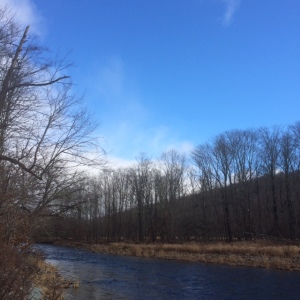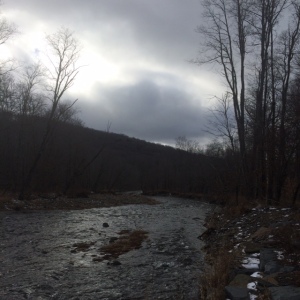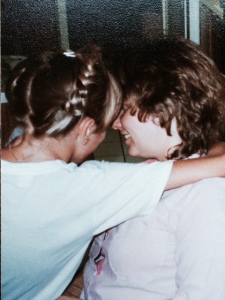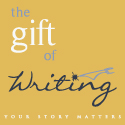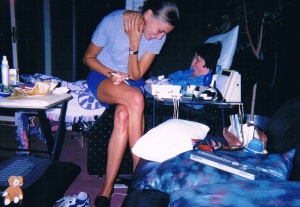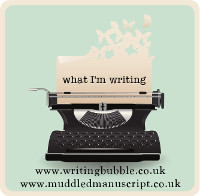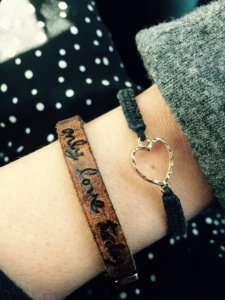As you may have noticed, there is a running theme here lately, about grief.
I didn’t intend to write so much about it, but that’s the thing about writing – you don’t always choose your subjects. Sometimes, they choose you.
When my mom died, she was all I could think about, write about, but I kept it mostly private. This was almost nine years ago, when the blogging and online world was quite different. I wrote – as I’ve always done – to understand. It was more instinct than decision. Now, the journals I filled have become a reference for the work I’m doing now.
I’m almost done writing the content of my grief course which I’ll be facilitating on the site, The Gift of Writing, and it’s been quite a journey. Despite all the time that has passed, I’ve learned things about my mom and myself I didn’t know before. That is one of the hopes I have for the people who join my class. You don’t have to be a writer to sign up, you just have to be willing to write.
If you’re interested in receiving updates about the class, click here to add your name to the wait list and you’ll be notified when registration opens.
In the meantime…
grief 3 ways
I recently wrote a guest post on The Gift of Writing called, Every Grief Counts: How to Honor Your Grieving Experience. I feel strongly about the importance of this post because I think there can be a sense of competitiveness and comparison when it comes to grief.
Sometimes I have to remind myself that grief is extremely personal. But the questions still rise up. How long is it appropriate to grieve? Are some losses “worse” than others? Please take a look at the article if you haven’t seen it already, or pass it along to anyone you think may be interested.
I also wrote an essay about my mother and her caregiver, Lucie, and the different ways both women showed me their love. You can read that here, on the lovely site, Mothers Always Write.
Last, but not remotely least, I am so proud of my friend Anastasia for the second book in her Ordinary Terrible Things series, Death is Stupid, published by Feminist Press.

Using her gift of collage and her deep well of empathy, she has created a wholly original book about death – including all the nonsense (well meaning and otherwise) that people say to children when someone they love dies. I urge you to watch the book trailer, which will give you a glimpse at the magic she makes with words and art.
Just to assure you, despite all my grief-making work, I am not at all depressed. It’s spring, one of my favorite seasons, and I’ve seen enough daffodils and forsythia to prove it. Sure, the chilling temperatures are a bit of a downer (and I’m very sorry to my upstate and New England friends for SNOW, not cool), but sometimes I think we forget the capricious, fickle, and teasing nature of April.
It’s still early spring, nestled up against the cold cusp of winter, and maybe clinging to the old season a little more tightly than usual. I imagine a dozing bear, annoyed at being roused, and yearning for just a little more sleep before it lumbers out into the sunshine.
Here’s hoping it lumbers out sooner than later.



